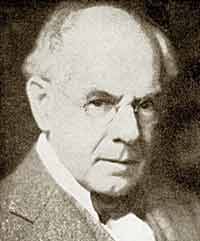|
Lawrence Totaro, proprietor of
Ultimate
Chess Collecting unearthed this scientific discovery:
from the New York Times,
November 25, 1900
PILLSBURY, PSYCHOLOGY SUBJECT
_________________________
Columbia Professor Finds the Chess
Expert Normal After Tests
Harry N. Pillsbury, the
chess expert, was a subject Friday evening at an exhibition at
Columbia University under the direction of the department of
psychology, Pillsbury was subjected by Prof. J. McK. Cattell [James McKeen
Cattell - sbc], Professor of Psychology, to the same tests which
are given to the freshmen. They include trials of memory,
perception of sound, and sensitiveness of touch. Prof. Cattell
said that he found nothing abnormal about Pillsbury and that he
would rank among the first 25 per cent of the freshmen.
After the tests, Pillsbury, blindfolded, played sixteen
simultaneous games of chess with Columbia's chess team. He won
thirteen of the games, lost two and one was a draw.
_________________________

James McKeen Cattell was an eminent psychologist
who lived between 1860 and 1944. He systematically
studied reaction times between physical activities and
the mental response, coming up with the term "mental tests."
Such tests included: hand squeeze strength, pain resistance,
two-point threshold for touch, judging the duration of ten
seconds
weight differential, reaction time to sound, time for naming
colors,
bisection of a 50-centimeter line and hand movement rate.
source
|

